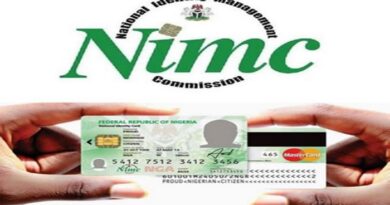FX crisis, hike in food items to leverage inflation rate to 18%
A group of financial analysts have projected 18 per cent inflation rate for September from 17.61 per cent recorded by National Bureau of Statistics (NBS) in August.
Finance experts have attributed the growth in inflation to hike in price of food items and unstable foreign exchange, which is the main culprit for the inflationary spike, and the possibility of a lengthening of the recession.
A Lagos based company, Financial Derivatives Company, said “Our forecast for year-on-year (YoY) headline inflation rate for the month of September is 18 per cent, a 0.4 per cent increase from August 17.6 per cent inflation rate.
“If the estimates of our model are accurate, it will be the highest level in 11 years. However, a change of 0.4 per cent indicates that the rate of increase is slowing. If this trend continues, the direction of inflation is likely to reverse.”
The predicted that Consumer Price Index of 208.24, with month-on-month inflation for September estimated at 0.95 per cent, a decline from August rate of 1.01 per cent.
According to the report by FDC, “Annualised monthly inflation rate is therefore estimated at 12.01 per cent. Monetarists are of the opinion that the country is in a state of stagflation.
“However, Fiscalists believe that Nigeria is in a recession. Both schools agree about declining growth, however, they disagree about the direction of inflation.
“In a state of stagflation, inflation (and unemployment) increases, however in a recession economic growth and inflation are moving in the same downward trajectory while unemployment rises.
“The pace of increase in consumer prices is declining for both headline and monthly inflation. Therefore, a recessionary state is a more accurate description and Nigeria’s economic challenges. Working with this premise, the argument for a more accommodative monetary policy – cut rates – is not implausible,” they stated.
The Lagos based company in its report explained that inflationary pressures are likely to reduce in October, attributable to trickledown effect of the new deal with Travelex to trade foreign exchange with Bureau De Changes in the country.
“Organization of Petroleum Exporting Countries (OPEC) came to the conclusion of cutting production to 32.5 -33 million barrel per day. “However, countries like Nigeria and Iran were given allowances to produce as much as possible.
“Therefore, the country’s reserves are to receive a boost and as such pressure on prices from forex scarcity is to be elevated. This is because the country is to enjoy higher oil revenue from higher oil prices (from OPEC production cut) and production allowance. The problem rests in the efficiency of the government to make sure the cease-fire with the militants is upheld,” they said.
They predicted that Central Bank of Nigeria (CBN) is likely to give into a more accommodative policy direction seeing that there is a divergence between headline and monthly inflation.





Athekame Kenneth liked this on Facebook.